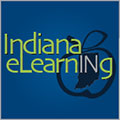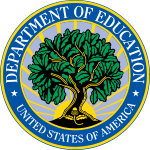


Wisconsin’s Writing a Professional Development Plan (PDP)
This document provides tips, components and resources for writing professional development planning at their website. WDPI also links to promising programs that illustrate professional development plans for districts seeking examples.
Maryland Teacher Professional Development Planning Guide
The guide describes the elements of an effective plan for teacher professional development and presents a six-step planning process.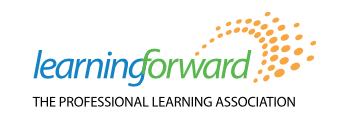
Learning Forward’s Professional Learning Plans Workbook
This resource provides an overview of comprehensive professional learning systems and provides a 7-step guide to developing professional learning plans.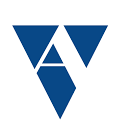
Culture Shift: Teaching in a Learner-Centered Environment Powered by Digital Learning
This report examines the characteristics of learner-centered instruction and the support that educators and schools will require to make such an approach work.Professional Learning in a Digital Age
This resource shows the changes in the professional learning field as related to what, how and when teachers learn, including important considerations of emerging models such as personalized learning networks, online learning opportunities and coaching.Standards for Professional Learning Resources
Professional learning that increases educator effectiveness for all students requires prioritizing, monitoring, and coordinating resources for educator learning. The Learning Forward Standards are general standards for professional learning across K12 that highlight the importance of sustainable, ongoing, job-embedded professional learning opportunities.Self-Directed
Self-Directed
Personalized Learning Networks
Online tools and social media have sparked new opportunities for educators to participate in self-selected, professional learning opportunities and to build their personalized learning networks (PLN) and to collaborate with peers. PLNs may include professional learning groups (online and in-person), COPs, listservs, blog subscriptions, newsfeeds and social media tool such as Facebook, Twitter, Instagram, Pintrest, Ning and Edmodo.-

Lesson-Sharing Sites Raise Issues of Ownership, Use
This article discusses lesson-sharing sites, key sources for common-core related PD, and the issues with ownership. “Say you’re a teacher and you’ve created a bang-up lesson on how to teach fractions on the number line. Everyone in the faculty room loves it. Fellow teachers are begging for copies. Your principal suggests you post it online […]
-
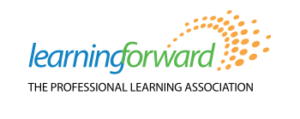
Professional Learning in the Learning Profession: A status report on teacher development in the United States and abroad
National Staff Development CouncilThis report provides an overview of professional learning and includes examples of formal and informal professional learning opportunities with some research regarding the effectiveness of self-directed learning opportunities.
-
Teachers Guide on Creating Personalized Learning Networks
Educational Technology and Mobile LearningThis web page provides a general overview of PLNs and multiple resources for educators related to PLNs.
-
Top State-by-State Twitter Chats
eSchoolnewsThis article provides an overview of statewide Twitter chats related to education technology.
From Policy to Practice
Sponsored by the Indiana Department of Education, the hashtag #INeLearn is used for both asynchronous sharing daily, as well as a synchronous conversation (TwitterChat) every Thursday night. The #INeLearn Chat Blog documents the topic schedule and moderators for these Twitter gatherings.
Recognition
Recognizing Professional Excellence
Teachers who invest in the professional learning needed to create effective digital learning environments can receive recognition for their skills in a variety of ways. Gone are the days when teachers were largely recognized only for learning associated with requirements to continue their certification or employment. Teachers can now pursue professional awards, portfolios, badges and micro credentials that document and verify learning, thereby differentiating their skill set from that of other less tech-savvy teachers.Professional Portfolios
Portfolios provide teachers with the prospect to show growth over time and provide examples of effective teaching practices that can be shared with others. Portfolios are increasingly electronic based and can also be a learning tool for the teacher and their peers regarding lessons learned, best practices and the professional learning experiences that have been most beneficial.Badges and Micro Credentials
Digital badges and micro credentials for knowledge acquisition have recently entered the education space. Badges are digital icons or logos on a web page. Typically badges are warded by institutions, organizations, groups, or individuals, badges signify accomplishments such as completion of a project, mastery of a skill, or marks of experience. (Educause Learning Initiatives: 7 Things you need to know about badges). Badges can provide incentives for participating in professional learning opportunities and an additional opportunities for collaborating with fellow educators. Numerous organizations and higher education institutions are now offering badges. Badges and and micro credentialing provide a shift in the way that educators demonstrate achievement and mastery.Resources
- A Guide to Understanding Student E-Portfolios: K-12 Digital Portfolio Programs for College and Career Readiness
- Digital Promise Micro-Credential Initiative
- Micro-Credentials: Empowering Lifelong Learners
- Open Badges Infrastructure (OBI)
- 7 Things You Should Know About Badges
- Digital Badge Systems: The Promise and Potential
- What is a badge?
Formal
Formal Professional Learning
Coaches
Instructional technology/digital learning facilitators or coaches have proven to be valuable in providing support to educators as they shift to new instructional practices. This direct one-on-one and small group instructional assistance can show teachers how to modify and deliver their lessons to take advantage of new technology resources. To be effective, districts should consider assigning at least one expert to each school (depending upon size) in order to accelerate the adoption of new forms of instruction and assessment.Communities of Practice (COP)
Online, face-to-face and hybrid models of communities of practice provide educators with the ability to connect with fellow educators both asynchronously and in real-time to share resources, successes and challenges. Teachers and administrators benefit from the ongoing support available through these communities as they grow and expand to support the diverse needs of educators. Communities may be school, district or state based and/or connect teachers of similar content areas or grade levels nationally or internationally. Communities of practice differ from educators’ online courses. Online courses are more structured, typically requiring specific content and activities within a specific time period. Many of them do contain elements of a CoP to facilitate interaction and support among participants.Examples of Communities of Practice
-

Indiana’s Online Communities of Practice
Indiana Department of EducationOrganized around teachers’ content areas, these groups were created to boost collaboration and peer-to-peer sharing of online resources aligned to Indiana’s Academic Standards.
-
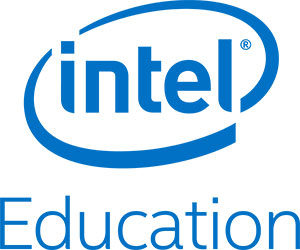
Intel’s Teacher Engage Community (sponsored resource)
Intel EducationThis online community provides ongoing support for teachers as they implement new teaching practices by connecting educators who implement technology into their classrooms and promoting student-centered approaches. It offers 21st century classroom resources, online courses, and active dialogue within a global network.
-

LearnPort
Michigan Department of EducationLearnPort serves all members of Michigan’s educational community, including faculty, administrators and staff in schools, affiliated professional organizations, and college and university education students and their teacher education faculty, as well as guests and collaborating users by providing high-quality online professional development, collaboration spaces and other resources for the education community.
- Effective Coaching by Design
- Differentiated Literacy Coaching
- U.S. Department of Education’s Connect and Inspire: Online Communities of Practice in Education
- Online Communities of Practice: What Works
- EdTech Leaders Online: A case study of scalable online professional development programs
- Statewide Use of Professional Learning Communities
From Policy to Practice
The goals for the Apache Junction United School District’s (AJUSD) Collaboration Coaching Program are to build capacity in 21st century learning, which is built into the Arizona College and Career Ready Standards (AZCCRS).More
All AJUSD collaboration coaches are classroom teachers that have made the commitment to participate in the program and work alongside their peers to develop an engaging, creative, and collaborative learning environment for students. The trainings focus on technology integration, lesson design and pedagogy. While Collaboration Coaching provides ongoing, job-embedded professional development through learning communities, the format is different at each school based on the site vision and goals. In all cases, where teams engage students in rigorous learning, as they support and help build capacity with the AZCCRS. Every year site principals collaborate with their coaches to develop goals, providing direction and support for their staff. Areas of focus include content-based or 1-to-1 professional learning communities, building capacity with the AZCCRS, setting goals to increase rigor, and co-facilitating project based learning models. In addition to the support of the collaboration coaches, all professional learning provided by the district office is designed with technology integrated into the instruction.


